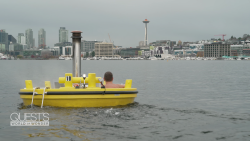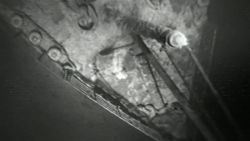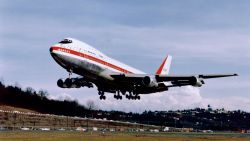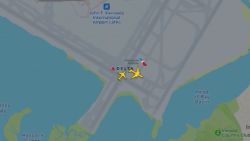Story highlights
Passengers surrender 750,000 items annually at airport checkpoints, TSA says
Many items are sold at a Pennsylvania warehouse and online
Knives are the most common item surrendered; a horse whip is rather unusual
Somewhere, somehow, someone tried to carry a tribal spear onto a commercial aircraft.
Troy Thompson knows that not because he is privy to the nation’s latest intelligence reports but because he works for Pennsylvania’s Department of General Services, where objects discovered and surrendered at airport checkpoints are stored, sorted and resold to the public.
The non-descript government building in Harrisburg, Pennsylvania, could be called the world’s most unusual thrift store because of the odd assortment of stuff that ends up there.
You’ll find piles of hockey sticks and golf clubs, dozens of snow globes, enough rolling pins to equip a culinary school and so many pocketknives that they are sold by the pound. All of the items are prohibited on planes because they could be used as weapons or, in the case of snow globes, could contain liquid explosives.
Every year, passengers surrender about 750,000 prohibited items at airport checkpoints. The Transportation Security Administration cringes at the term “confiscated” because passengers have the option to return prohibited items to their cars, check them with their baggage, ship them home, or hand them off to someone on the public side of the checkpoint.
But more often than not, rushed travelers surrender the items – or “voluntarily abandon” them, in TSA parlance – to screeners.
Illegal items – guns, grenades, brass knuckles and such – are handed over to local law enforcement. (The TSA seizes on average four guns a day at checkpoints and took a total of 1,549 last year.)
But prohibited items – knives, large tools and sporting equipment – are considered excess government property and are sent to the nearest state willing to accept them. The TSA does not profit from abandoned property, it says.
But Pennsylvania says the commonwealth can profit largely because it already has a facility devoted to selling government surplus. Using those resources, Thompson said, Pennsylvania has brought in almost $900,000 in the past nine years selling checkpoint items.
Who’s who in opposition to TSA rule change
Knives are probably the most common items aside from liquids, which are thrown away. Travelers surrender about 35 knives at Baltimore-Washington International Airport on an average day and about 47 per day at Los Angeles International Airport.
Pennsylvania employees research the market values of items and set prices, taking into consideration the items’ conditions. Some items are sold in a no-frills government surplus store in Harrisburg. Most are auctioned on GovDeals.com (search for “Pennsylvania Surplus”). New batches of items are placed on the auction block three times a week.
Oddities include a large box filled with bullet belts. Whether they came from punk rockers or Hopalong Cassidy fans, or perhaps both, is unknown. “You can’t physically go through each bullet to make sure it’s not a real bullet,” Thompson said.
In the inventory this week were Nunchaku, or nunchucks, toy guns and a horse whip. “I don’t know who would want to take a horse whip onto a plane,” Thompson said.
Thompson said he doesn’t expect the TSA’s recent decision to permit small pocketknives to appreciably alter the flow of goods through his department. Many of the surrendered knives have longer blades and will remain prohibited.
And there’s always someone trying to board an aircraft with bullet belts, nunchucks and spears, which, if nothing else, keeps jobs at the checkpoint and one Pennsylvania surplus store very interesting.



















